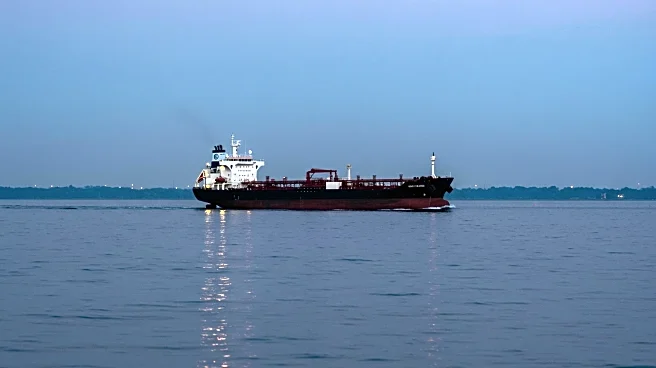What's Happening?
Nayara Energy, an Indian refiner backed by Russian interests, is navigating European Union sanctions by employing a 'dark fleet' of vessels to transport refined fuels. The sanctions, imposed in July, have disrupted Nayara's operations, leading to a reduction in crude processing. Despite these challenges, Nayara continues to import Russian oil, facilitated by vessels under EU sanctions. The company, which controls a significant portion of India's refining capacity, is seeking governmental assistance to stabilize its operations. Russian entities are reportedly aiding Nayara in securing shipping resources.
Why It's Important?
The situation highlights the complexities of international sanctions and their impact on global energy markets. Nayara's reliance on sanctioned vessels underscores the challenges faced by companies operating under geopolitical constraints. This development could affect India's energy security and its diplomatic relations with both Russia and the EU. The use of a 'dark fleet' raises concerns about the enforcement and effectiveness of sanctions, potentially prompting further scrutiny and regulatory measures from international bodies.
What's Next?
Nayara's continued operations under EU sanctions may lead to increased diplomatic tensions and potential policy shifts. The Indian government might face pressure to align more closely with international sanctions, impacting its energy strategy. Additionally, the EU could consider tightening sanctions enforcement, affecting global shipping and trade dynamics. Stakeholders, including shipping companies and insurers, may reassess their involvement with sanctioned entities, influencing market behavior.









